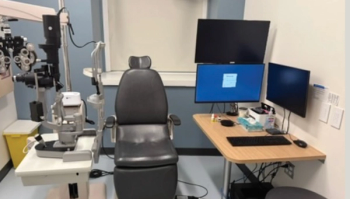
Toxicity, therapeutics studied
Results of an in vitro study of the potentially adverse efefcts of five different topical glaucoma medications and preservatives are revealed
Results of an in vitro study of the potentially adverse effects of different topical glaucoma medications and preservatives showed that the preservatives polyquad (PQ) and sofZia (Alcon) had much less toxicity when used in place of benzalkonium chloride (BAK) in prostaglandin analogue formulations, according to senior author Dr Malik Y. Kahook, Rocky Mountain Lions Eye Institute, Department of Ophthalmology, University of Colorado Denver School of Medicine, Aurora, Colorado, USA.
The study, published in the November issue of Advances in Therapy, compared the in vitro effects on both cultured human corneal and conjunctival epithelial cells of five prostaglandin analogue formulations.
Test solutions
Dr Kahook and colleagues found that exposure to an increasing percentage of BAK caused a dose-dependent increase in both conjunctival and corneal epithelial cell death compared with BSS control.
"The higher the concentration of BAK, the more likely you are to see changes in cell metabolism in vitro," he said. "We noticed that there was a definite advantage to having the alternative preservatives in place compared with the standard BAK-preserved travoprost."
Possible cytoprotective effect
The study also found that the toxicity of the prostaglandin analogues preserved with BAK was close to that of their respective BAK concentrations alone. Confirming previously reported findings, the study additionally determined that travoprost with 0.015% BAK performed better than 0.015% BAK alone, indicating a possible cytoprotective effect of the prostaglandin analogue.
In the study, confluent cultures of human corneal and conjunctival cells were assayed with 100 µL of the different glaucoma medications for 25 minutes at 37 °C and 5% CO2. SofZia and a range of concentrations of BAK (0.001% to 0.050%) were also tested.
According to Dr Kahook, a tremendous amount of information about the tolerability of different formulations of glaucoma drugs has been reported, but the lack of appropriate metrics has limited the clinical relevance of the obtained data.
"We don't have any great, reproducible metrics for ocular surface disease that can be done in a multisite study. Because of the lack of metrics, there has been difficulty in correlating in vitro and in vivo findings," he explained.
Data from in vivo studies are available on specific patient populations, such as those who have had previous problems with formulations containing BAK or patients who have severe ocular surface disease. These studies have shown that changing from a drop preserved with BAK to one that is not results in improvement in metrics such as tear break-up time or lissamine green staining.1,2
However, it would be difficult to expand these findings to all patient populations because current metrics are insufficient to identify the subtle changes that can occur in the ocular surface when switching medications, Dr Kahook said. Many laboratories are investigating better ways to understand how in vitro findings compare with in vivo responses, he added, and developing better clinical diagnostic methodologies for making direct comparisons, if any exist.
Dr Malik Y. Kahook is director of clinical research and chief of the glaucoma service at the Rocky Mountain Lions Eye Institute, Department of Ophthalmology, University of Colarado Denver School of Medicine, Aurora, Colarado USA. He can be contacted by E-mail:
Dr Kahook has received research support from Actelion, Alcon, Allergan, American Glaucoma Society, Genetech, Merck and the State of Colorado.
References
1. M.B. Horsley and M.Y. Kahook, Clin. Ophthalmol., 2009;3:291–295.
2. H. Uusitalo et al., Acta Ophthalmol., 2010;88:329–336.
Newsletter
Get the essential updates shaping the future of pharma manufacturing and compliance—subscribe today to Pharmaceutical Technology and never miss a breakthrough.




























